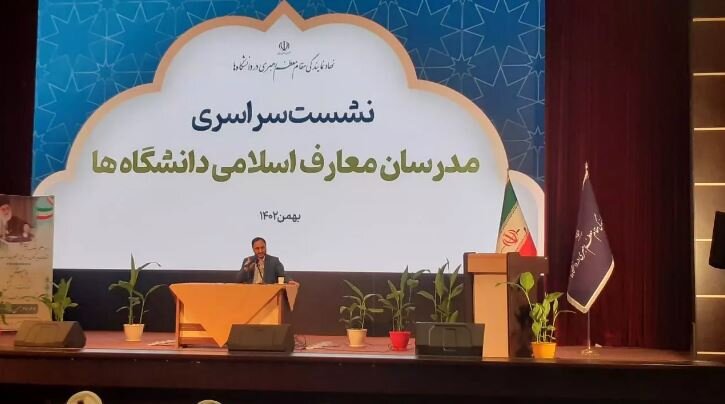West unable to hinder Iranian nation’s progress: spox

TEHRAN - The Iranian administration’s spokesman says the enemies’ plan to hinder Iran’s progress has proven to be ineffective.
Ali Bahadori Jahromi made the remarks during a meeting with Islamic teaching instructors on Friday, shedding light on the nation's economic landscape and drawing connections to citizens' livelihoods.
Bahadori Jahromi acknowledged the administration's persistent efforts and delved into the intricacies of inflation and economic challenges, stating, "Despite grappling with prolonged high inflation and navigating international challenges, the West strategically sought to impede our country through stringent sanctions, aiming to dampen the spirits of the people."
The spokesman went on to explain, "The Western strategy involved transitioning from economic sanctions to political measures, with the goal of isolating Iran in the process, which turned out to be futile."
Bahadori Jahromi confidently declared, "Despite the enemy's concerted efforts to politically and economically isolate the Iranian people, the 13th administration successfully garnered the trust of the populace."
He also acknowledged Western hostility during rounds of negotiations, which was another impeding factor.
The spokesman concluded, "The 13th government has charted a new course, not only adopting a distinct approach in the economic sphere but also in foreign policy. The average economic growth, which stagnated at zero during the previous government, has surged to 4.5% over the past two years. Our economic growth in the spring and summer, as reported by the official sources, surpassed 7%, while the Central Bank’s report indicates a growth of approximately 6%."
Back in May 2018, Trump unilaterally pulled the US out of the 2015 Iran deal, officially known as the Joint Comprehensive Plan of Action (JCPOA), and initiated the so-called ‘maximum pressure campaign’ against Tehran despite its full compliance with the pact. Consequently, Washington's European allies, including France, Germany, and the United Kingdom, aligned with the sanctions by curtailing their trade activities with Iran.
The campaign, although falling short of achieving its intended goals, had severe repercussions on ordinary Iranians, especially those grappling with life-threatening illnesses. Even with the change in administration to Joe Biden, the sanctions persisted, constricting financial channels crucial for acquiring basic goods and medicine. This, in turn, disrupted supply chains by limiting the number of suppliers willing to facilitate the sale of humanitarian goods to Iran.
Despite claims by Washington and its Western allies that humanitarian goods were exempted from sanctions, tens of thousands of patients in Iran have over the years died or developed critical ailments due to the non-availability of essential drugs.
Iran vehemently denounced these sanctions as acts of "economic war," "economic terrorism," and "medical terrorism."
The subsequent Vienna talks, initiated in April 2021 with Britain, France, Germany, Russia, and China, aimed at reinstating the JCPOA. Iran, firm in its stance, insisted on the verifiable removal of all U.S. sanctions and sought guarantees against a future abandonment of the agreement by Washington.
However, discussions hit a standstill in August 2022, primarily due to Washington's unwavering position of not lifting all the sanctions imposed on Tehran by the previous U.S. administration. Adding to the complexity, the U.S. and the European Union imposed additional sanctions on Iran in response to nationwide riots in Iran and allegations of Tehran supplying armed drones to Russia for the conflict in Ukraine – claims that Tehran vehemently denies.
Various analysts believe Iran has managed to neutralize the sanctions in many areas and begun to repair its economy which took a heavy tool from Western embargoes.
